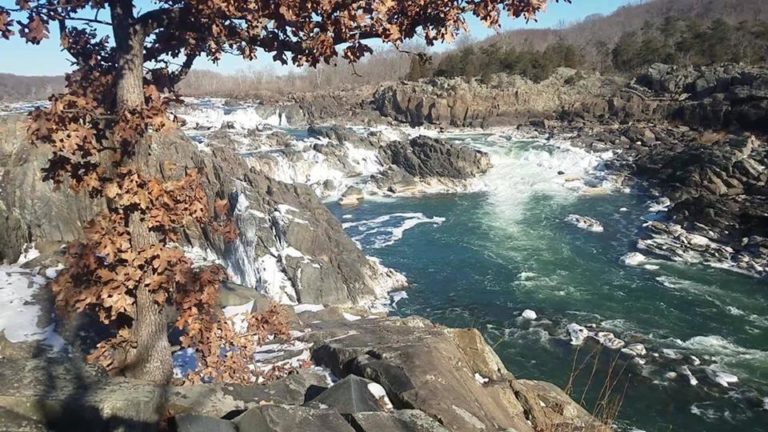10 Big Local Wins Against Dirty Energy
By: Ellen Simon

Waterkeepers around the world fight for clean water. As Waterkeeper Alliance turns 20, we’re looking at some of their biggest wins.
These fights are always personal — because they’re local.
One of the key sources of pollution Waterkeepers defend their waterways against is dirty energy.
The fights can be long, but the victories are often dramatic. One example: The Catawba Riverkeeper Foundation in 2016 secured the cleanup of leaking coal ash from North Carolina’s Mountain Island Lake, which provides one million people in the Charlotte region with drinking water. That excavation is nearing completion, with 5.1 million tons of ash recycled or moved to lined storage. The state’s environmental regulator on April 1 ordered Duke Energy to fully excavate all six of its remaining coal ash storage sites in North Carolina.
Need a lift today? Here are nine more examples of Waterkeepers who fought dirty energy corporations in their local watersheds — and won.
-
-
- For years, a coal-fired power plant discharged billions of gallons of water at 95 degrees into the Mount Hope Bay, raising water temperatures, and killing scores of winter flounder and other fish. After years of advocacy by Rhode Island’s Narragansett Baykeeper and Save The Bay, the plant owner was ordered to install a cooling system at a cost of $620 million.
- After Sunoco Logistics discharged at least 55,000 gallons of gas into a tributary of Pennsylvania’s Susquehanna River, the Middle Susquehanna Riverkeeper played a key role in holding the company responsible; part of the $12.6 million in fines the company must pay will be used for watershed improvement projects.
- Potomac Riverkeeper and James Riverkeeper have for years fought to push Dominion Energy to clean up 28 million tons of toxic coal ash the company stores in dangerous, leaking coal ash ponds along the Potomac, James, and Elizabeth Rivers. Virginia lawmakers agreed in February, approving legislation that requires that all that ash be recycled or safely landfilled within 15 years.
- Push Back The Pipeline, a coalition including Savannah, Altamaha, Ogeechee and Satilla Riverkeepers, defeated the proposed Palmetto Pipeline, a Kinder Morgan line that would have moved refined petroleum products 360 miles through South Carolina, Georgia and Florida.
- Haw Riverkeeper won a temporary injunction in 2015 to prevent fracking permits from being issued in North Carolina. There still is no fracking in the state.
- Washington state’s North Sound Baykeeper defeated the proposed Gateway Pacific Terminal, which would have been North America’s largest coal export terminal, dumping 1.78 tons of coal dust in waters and communities, threatening an ecosystem that includes orcas and humpback whales.
- Gunpowder Riverkeeper in Maryland used legal action to halt a 21.1 mile long, 26-inch- diameter interstate natural gas pipeline from crossing 81 high-quality wetlands and waterways in the Gunpowder watershed. This win protected native and wild trout, as well as the drinking water supply for roughly 1.5 million Baltimore-area residents.
- Lower Susquehanna Riverkeeper’s legal action against Pennsylvania Power and Light for releasing hot water from Brunner Island Steam Electric Plant resulted in a settlement that forced the company to install over $120 million of new cooling unit technologies to decrease thermal discharge from roughly 123 degrees Fahrenheit to about 85 degrees. This technology has reduced the severity of fish kills in the area.
- A large portion of the gas-rich Marcellus Shale is in Maryland, but Waterkeepers Chesapeake played a crucial role in permanently banning fracking in the state, protecting its waterways and communities.
-









